CCG 2017 “China and Globalization Roundtable Forum” Discusses Ideas to Push Forward Globalization
January 19 , 2021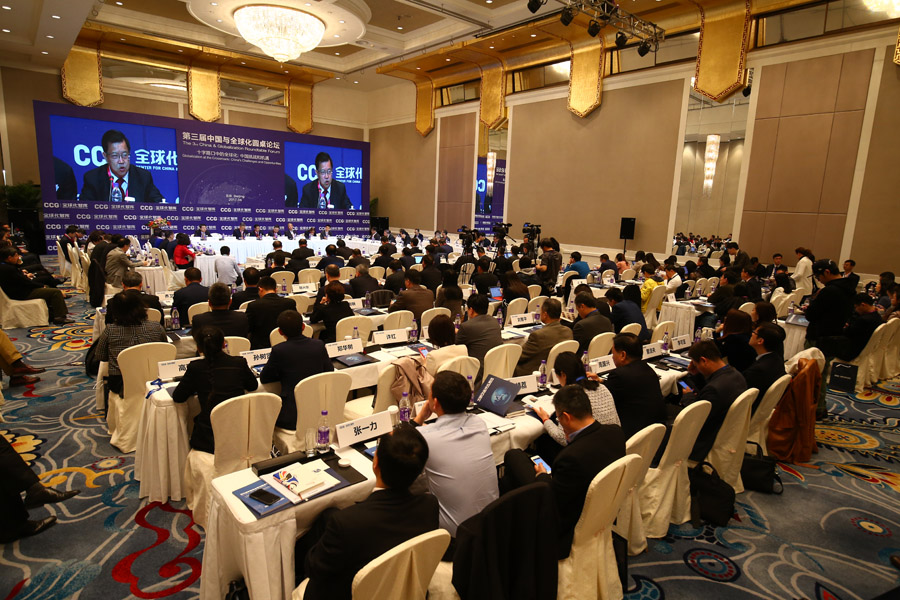
The 2017 China and Globalization Roundtable Forum was held on April 9, 2017, gathering over 200 government officials, business executives and academic leaders as well as CCG council members and scholars to discuss how to tap Chinese think tanks’ resources to find solution to pushing forward inclusive globalization.
It is the 3rd China and Globalization Roundtable Forum, one of the most significant roundtables gathering the leaders of various sectors in China. CCG intends to make it an internationally influential forum in the world.
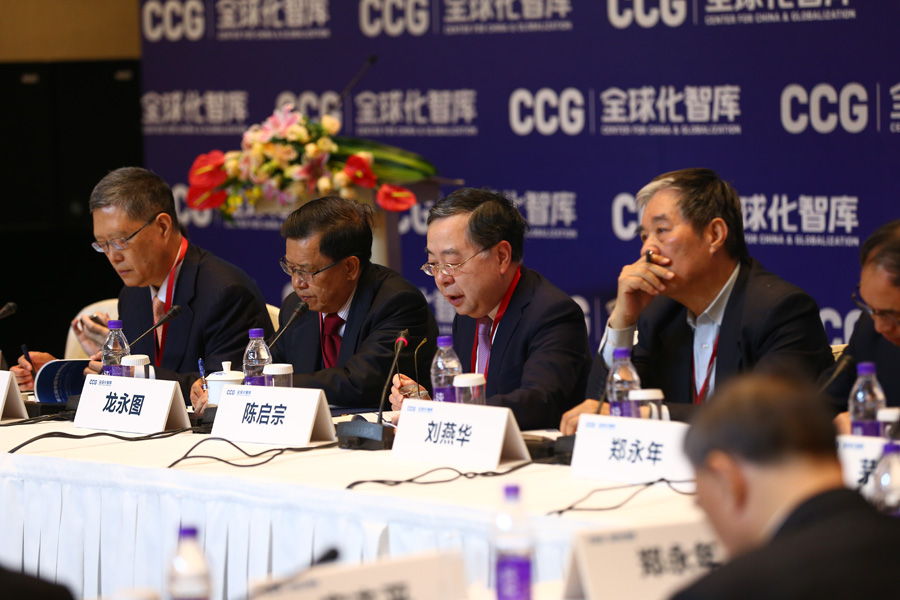
The past year has witnessed a growing momentum of de-globalization. Nevertheless, President Xi reinforced China’s support to globalization in his speech at the Davos Forum. CCG, as one of the earliest think tanks dedicated to the study of globalization in China, has been long tracking the development of China’s globalization strategies, and established a network of first-class scholars, senior government officials and entrepreneurs with global business operation experience.
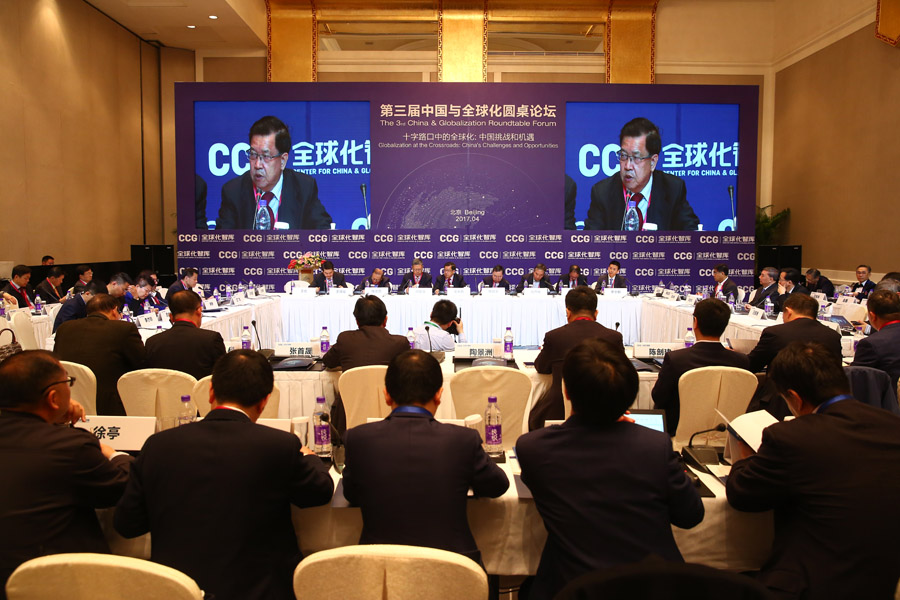
Against such a backdrop, CCG held this roundtable forum titled “Globalization at the Crossroads: China’s Challenges and Opportunities” , to discuss the issues in seven aspects and propose policy recommendation accordingly.
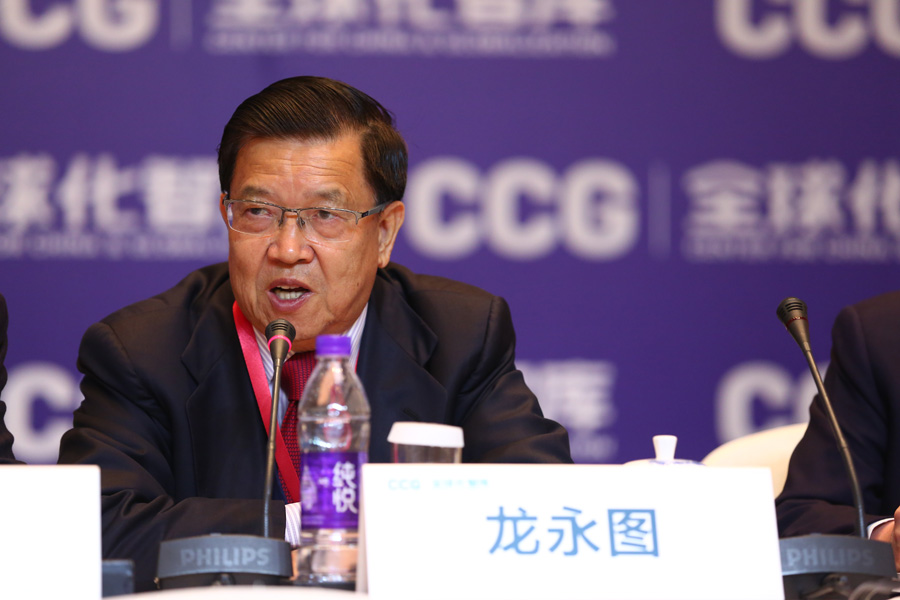
At the opening session, Long Yongtu, CCG Chairman and Former Vice Minister of Commerce, provided his diagnosis for de-globalization, which is that people with different social status cannot benefit equally from globalization. Therefore, how to reduce unfairness is the key moving globalization forward. He believes that China has successfully reduced inequality and can provide best practice to other countries.
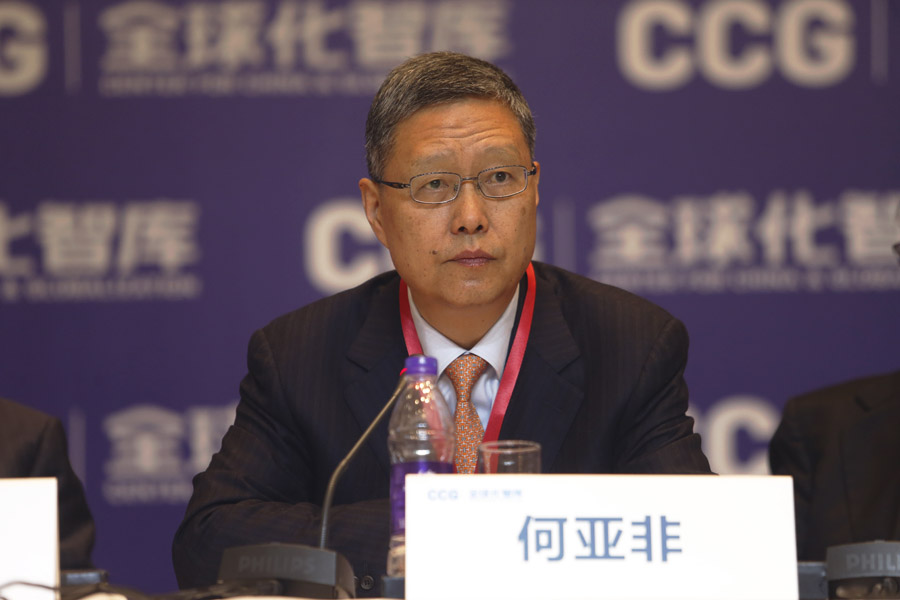
Learning from the lessons in the western countries in tackling the problems that arise in the process of globalization, China should make it a key strategic consideration how to handle the opportunities and challenges of globalization. He Yafei, CCG Co-Chairman and Former Vice Minister of Ministry of Foreign Affairs, believes the traditional global governance system is no more effective and needs to be revamped. In the meantime, emerging economies and developing countries are expecting China to propose new plans to reform global governance. He suggests that China should increase its role in global governance, equivalent to its economic power, and provide more global public goods.
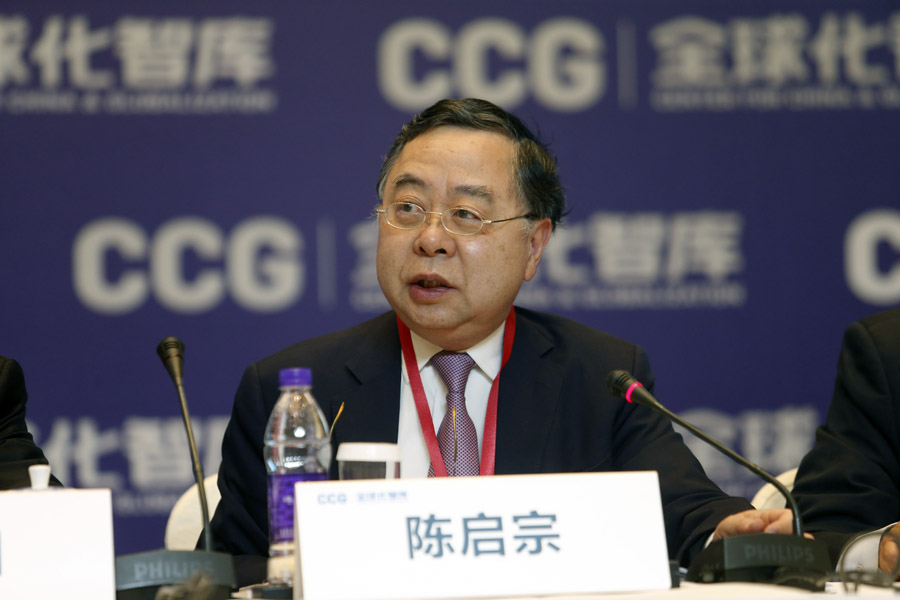
In his keynote speech, Ronnie C. Chan (Chen Qizong), CCG CO-chairman and Chairman of Hang Lung Group, notes international community is split as to how to proceed with globalization, with the United States leaning towards isolation and de-globalization and China insisting to push forward globalization. Although, he believes that many US enterprises won’t follow the Trump government’s lead to give up globalized market, but only attempting to create a global economic order in favor of the US interest.
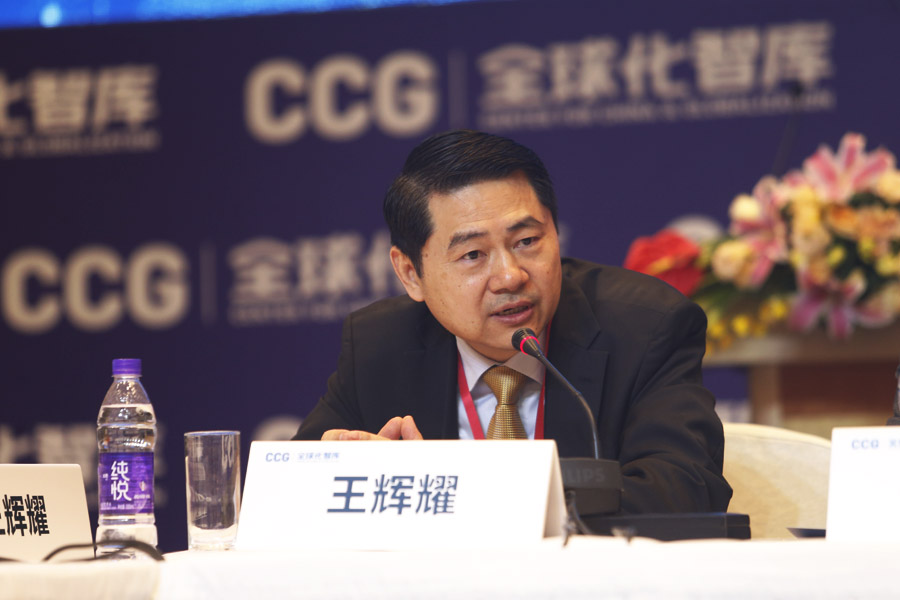
CCG President and Counselor of the State Council Wang Huiyao calls on China to play a more significant role in globalization by sharing its development experience, practice and innovation with the rest of the world to help find solution to global issues.
In-depth Analysis of Current Status and Prospect of China’s Globalization
The 2017 China and Globalization Roundtable Forum comprised seven conferences focusing on different aspects of globalization issue.
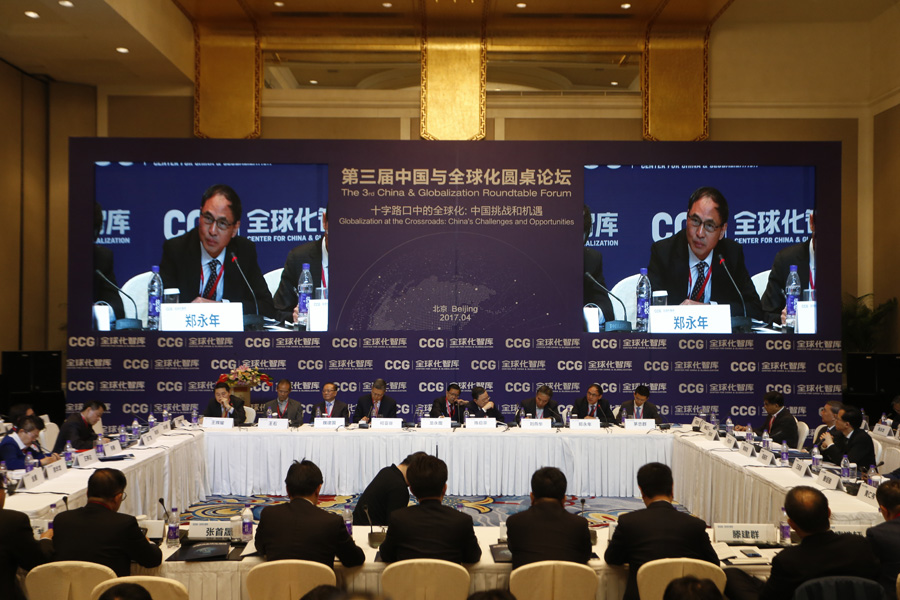
At the Plenary Session I “Global Governing and China’s Role in globalized Era”, the host, CCG President Wang, leads the discussion about China’s future role in global governance and economic cooperation, and how China can contribute more to multilateral diplomacy and international organizations.
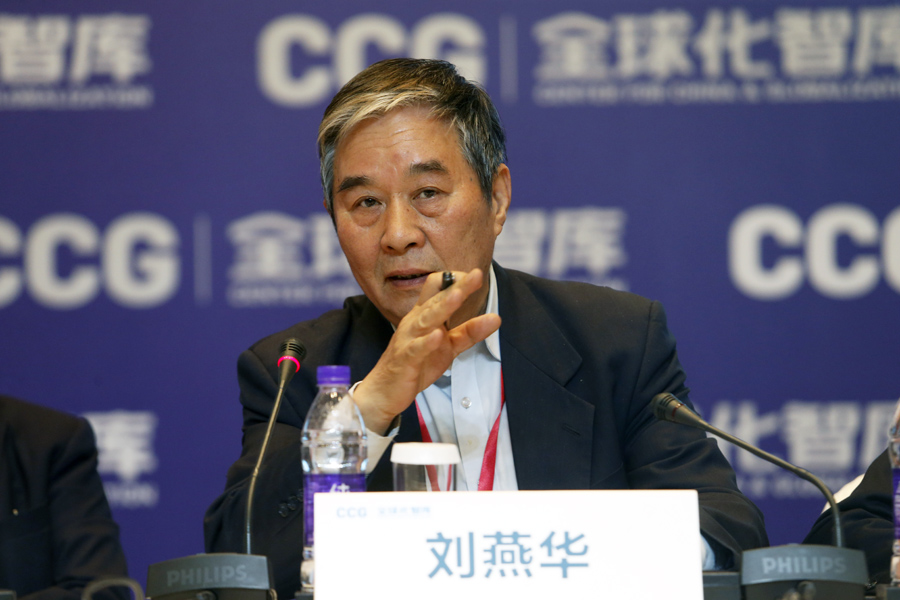
Liu Yanhua, Former Vice Minister of Science and Technology and Counselor of the State Council, identifies a new trend that global governance has expanded the coverage from tangible to intangible resources such as IP address, gene registration, and telecommunications channels, which will become the center issues in the future. In addition, he believes the global governance should also include a new type of science and technology management system. To participate in globalization, China should continue with green development and take its responsibility to tackle global climate change, as Liu emphasize.
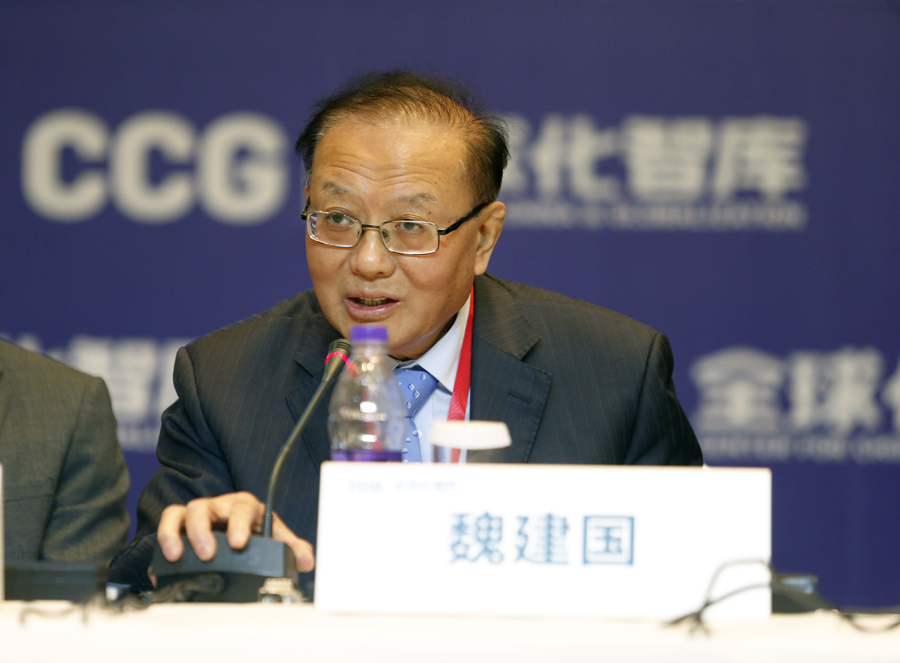
Wei Jianguo, Former Vice Minister of Ministry of Commerce and Executive Deputy Director of China Center for International Economic Exchanges, disagrees with the view that China has benefited from globalization most. As a matter of fact, all countries have benefited from globalization to a certain extent. Despite its growing role in globalization, China needs to work with other countries to adjust the existing global governance system to make it move forward.
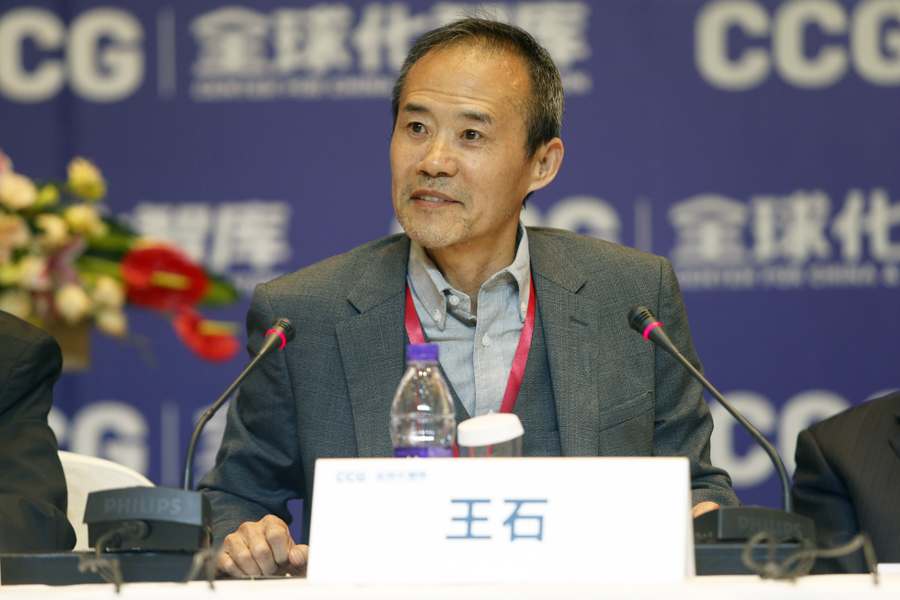
Speaking as part of Chinese business community, CCG Senior Vice President Wang Shipoints out one single issue that Chinese companies have to prioritize is environmental protection, because green economy is a future trend.
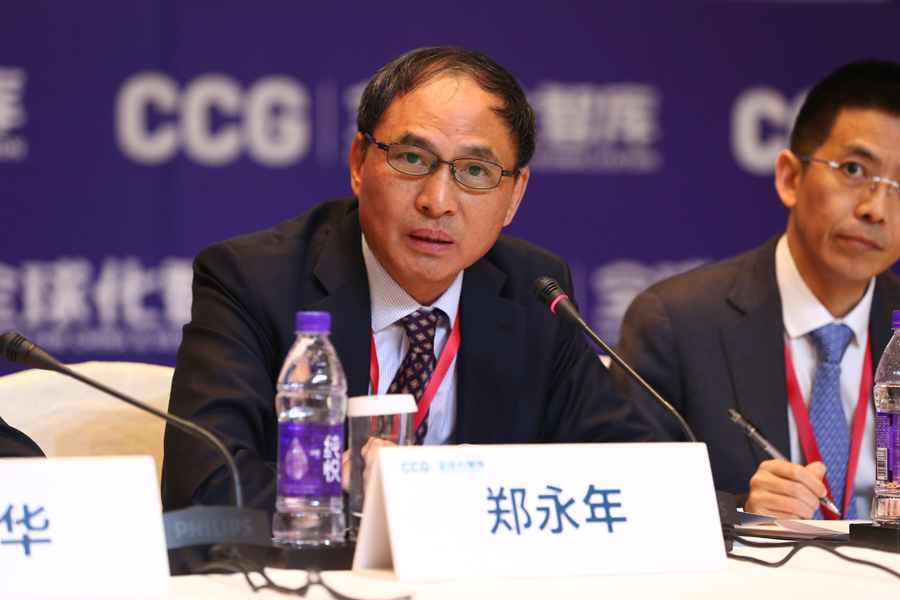
While de-globalization has triggered a lot of criticism and concern, Zheng Yongnian, head of CCG Academic Advisory Committee and the Director of East Asian Institute at the National University of Singapore, believes that it won’t lead the United States to return to isolationism. On the contrary, it may have some positive impact on globalization by pushing major economies to readjust their policies to cope with new challenges.
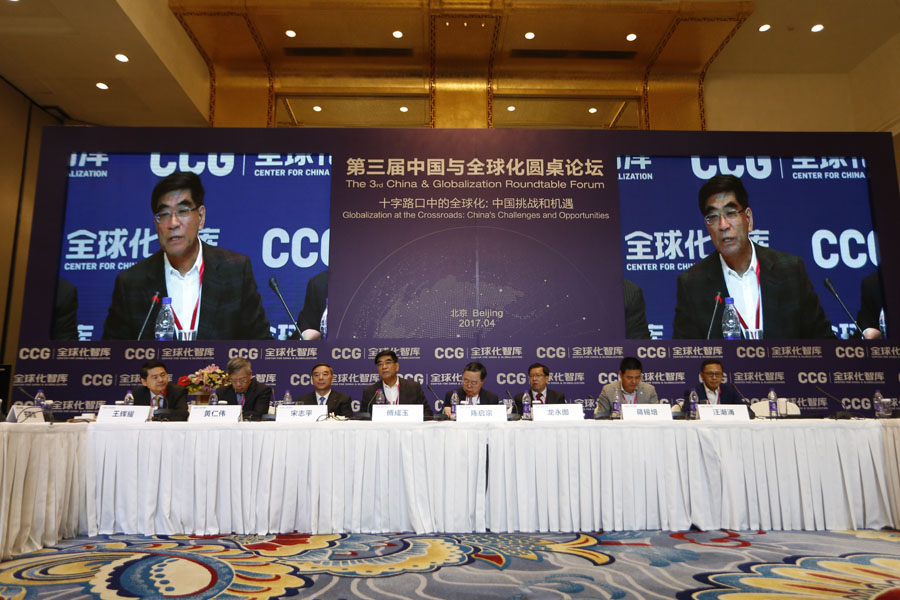
At the Second Plenary Session:Chinese Responses to De-globalization and Opportunities in new Globalization world, participants explored the solution for Chinese companies to adjust their “going out strategy” facing the new challenges in global governance and world economy.
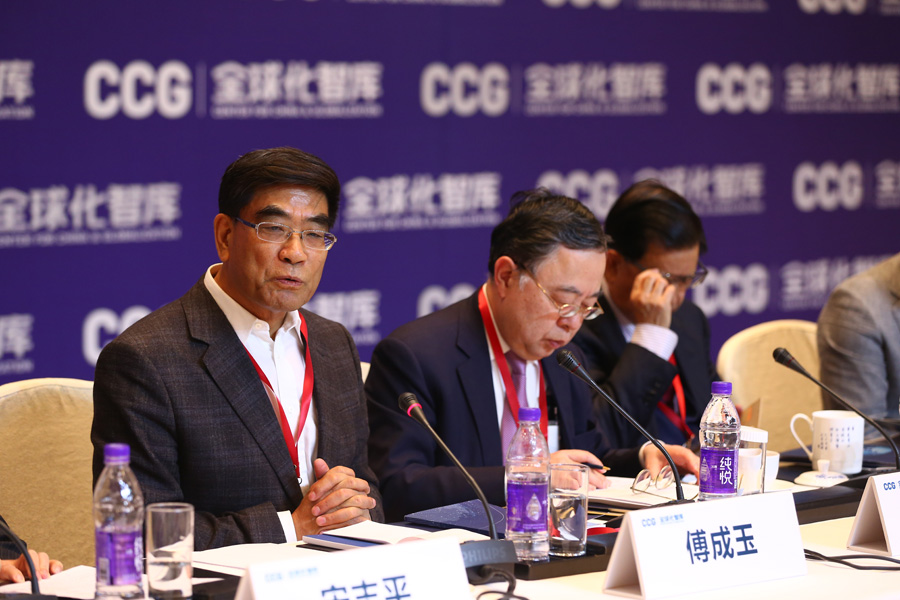
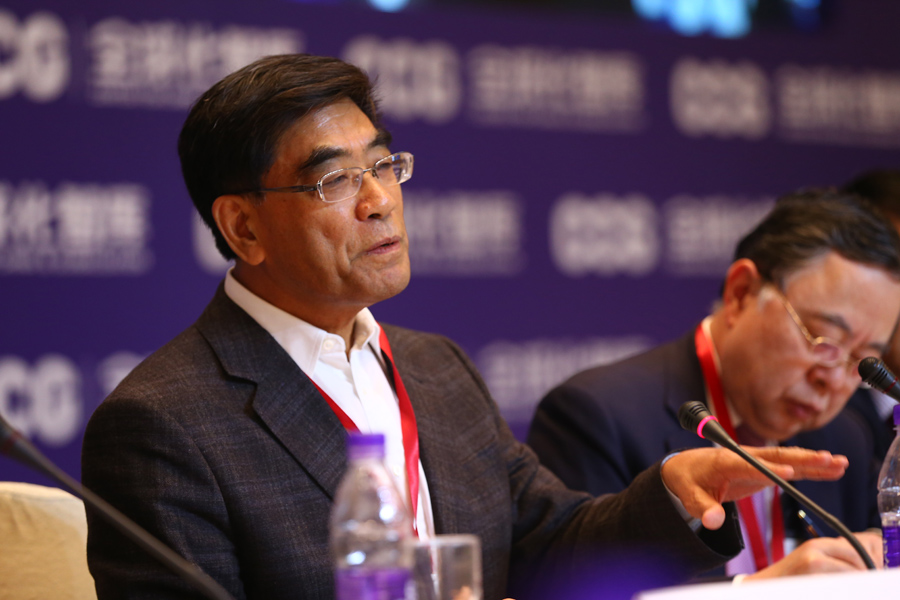
Fu Chengyu, member of CCG’s Advisory Committee and Former President of China Petrochemical Corporation, argued that before talking about making rules and taking leadership for globalization, China should first really participate in globalization and help provide solution to global market competition and distribution of benefit. However, he believes that Chinese companies have not yet accepted internationalization concept or establish internationalized management and operation systems.
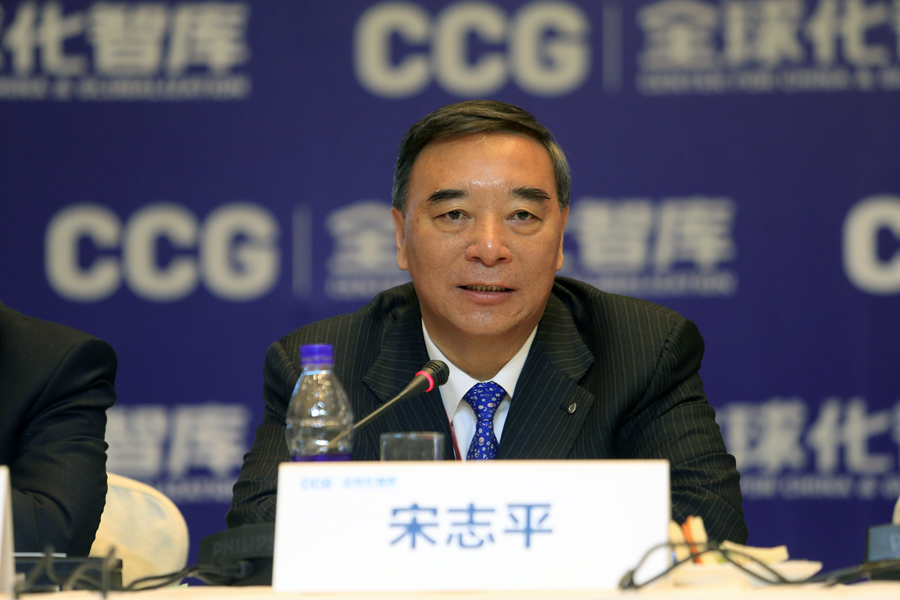
In terms of the international competitiveness of Chinese companies, Song Zhiping, Chairman of China National Building Materials Group Corporation suggests that Chinese companies should clearly position themselves in the global market and state their competitive advantage – best price–performance ratio, advanced equipment with good technical function, and lower price.
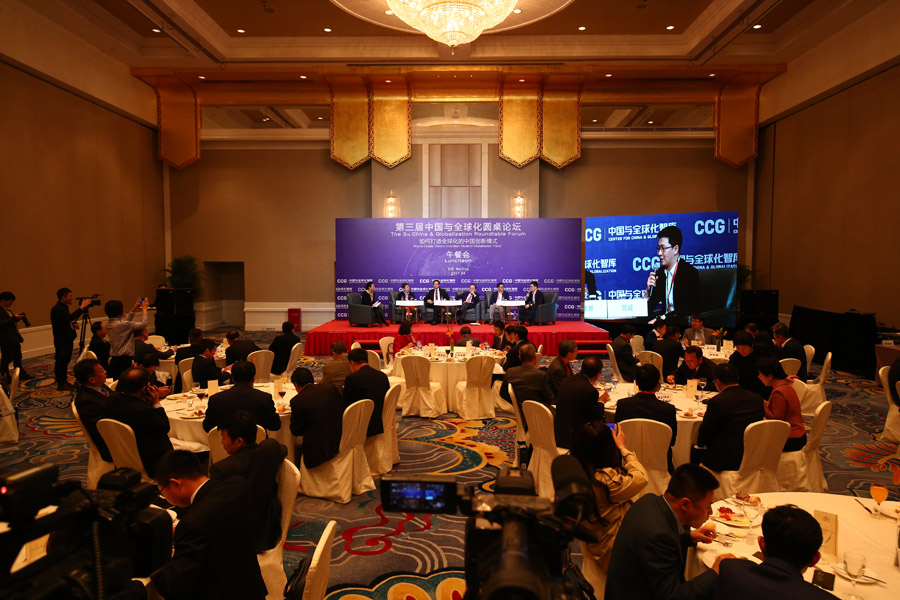
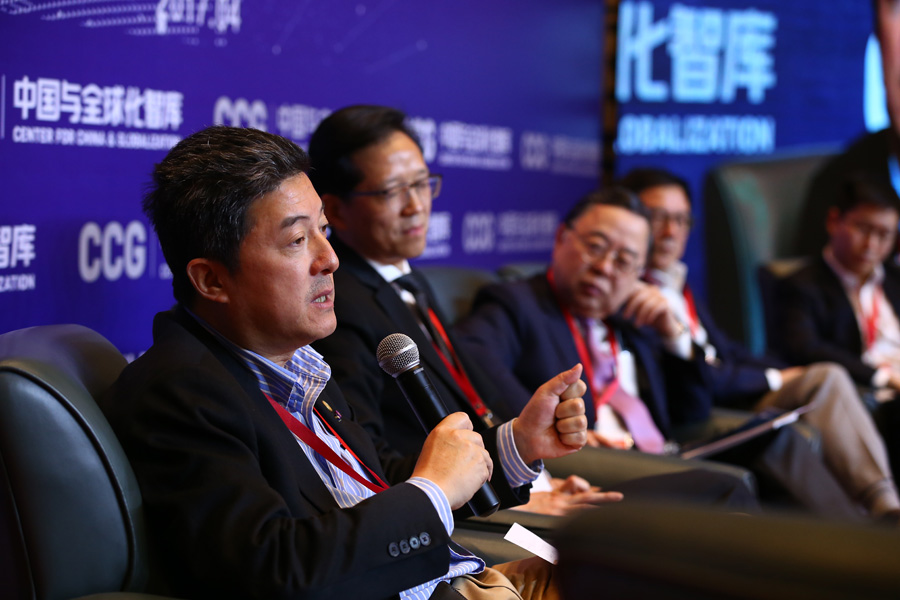
At the third Plenary Session: Establish Chinese mudulus of Innovation, the core issue that has been discussed is how China can be better geared up to accelerate innovation, moderated by Li Yifei, CCG Vice Chairman and Chairman of Man Group (China).
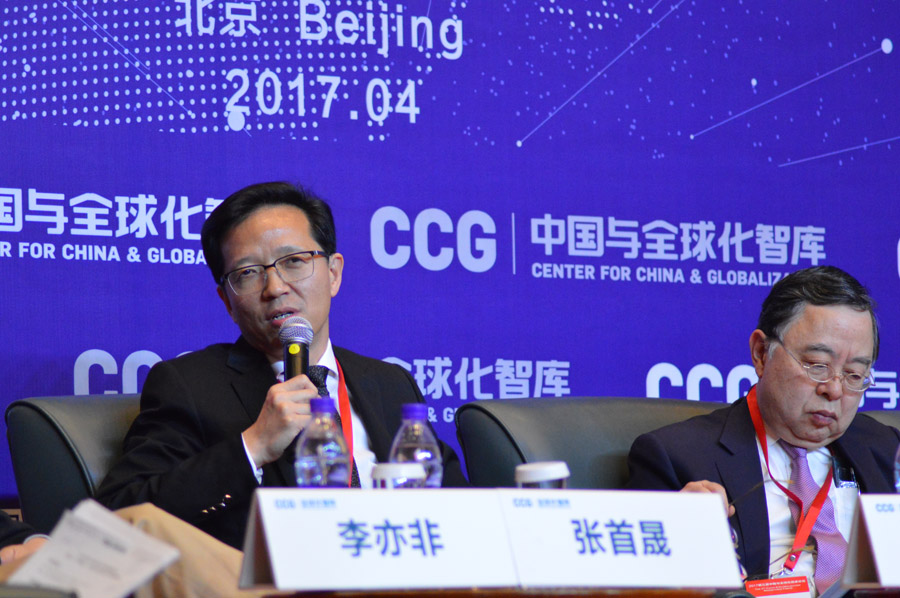
Gao Zhendong, CCG Vice Chairman and CEO of Positec Group, points out two issues key to innovation. For one, individual innovation capability should be integrated and converted into team innovation capacity through an established innovation system. The second issue is how to innovate, not just fundamental technologies but also final products.
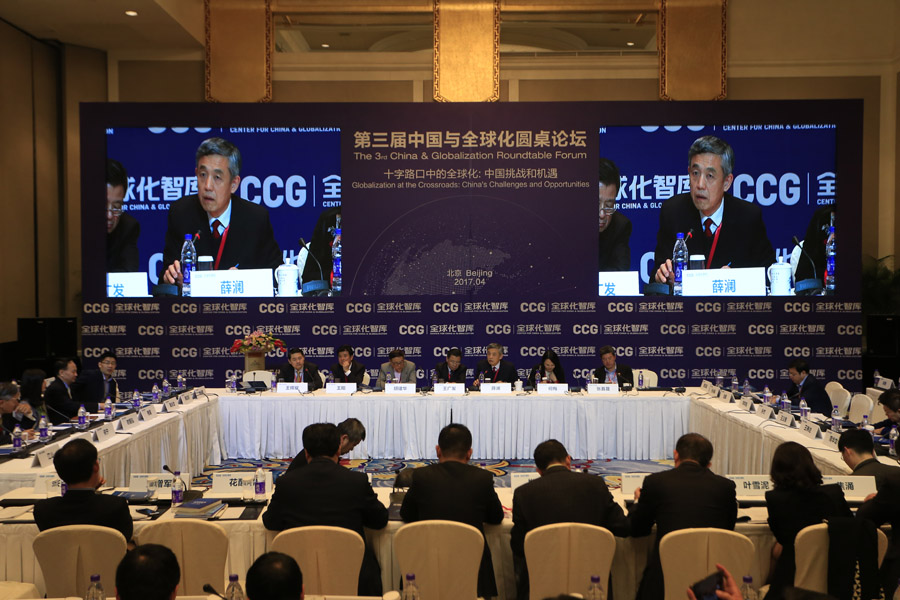
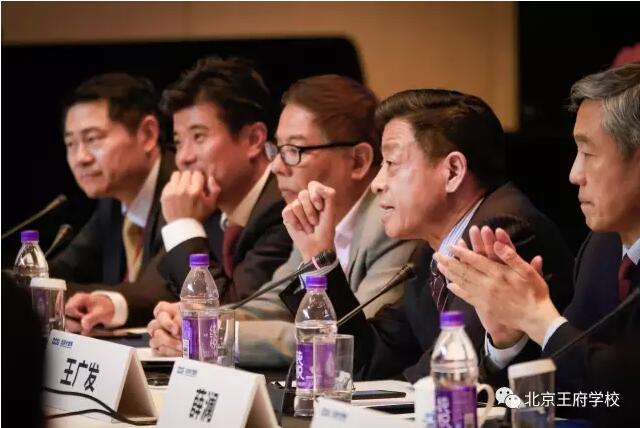
For the transformation of Chinese companies and overall economic growth, a key element is talent development. The 4thPlenary Session was focused on “China’s International Talent Strategy in New Globalized Era”, where the panelists discussed how China can establish a mechanism to attract international talent, especially those with advanced technical and management skills.
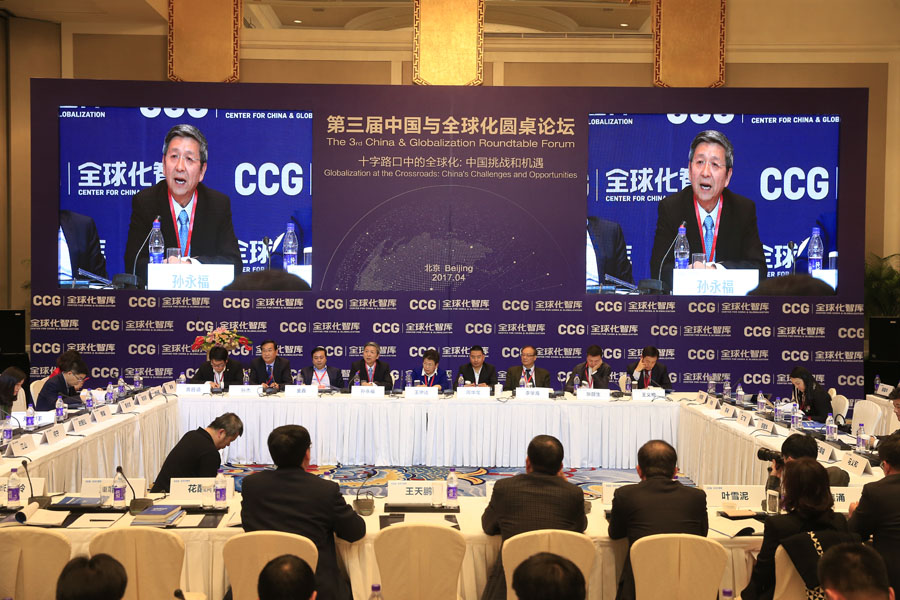
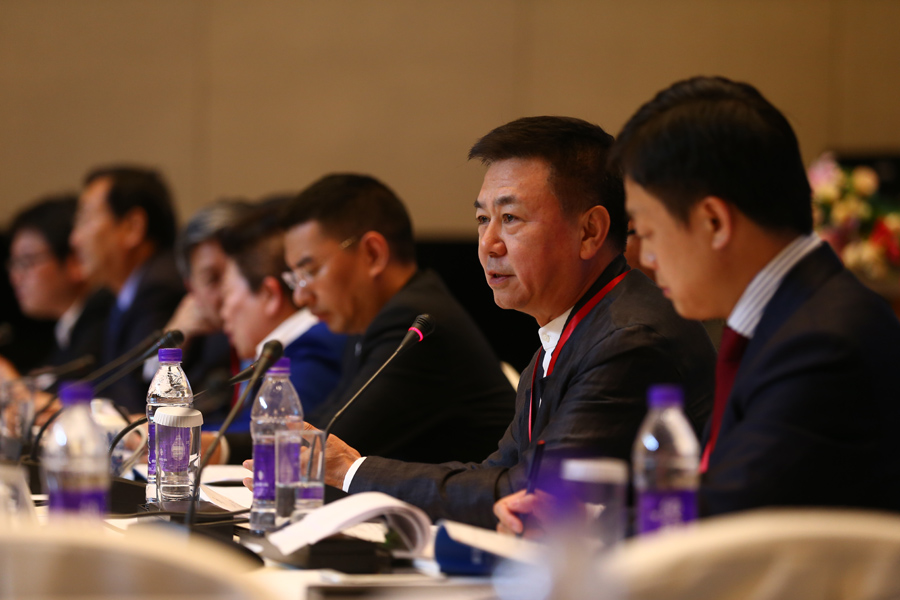
As another trendy topic, China’s “One Belt, One Road” initiatives have received a lot of attention and expectation from international community for China’s expanding role in global affairs. The whole world is watching how Chinese government and companies can provide strong support to regional integration and cooperation. At the 5th Plenary Session, participants examined the “One Belt, One Road” initiatives from various perspectives and its implication to Chinese companies’ strategies for industrial restructure and global expansion.
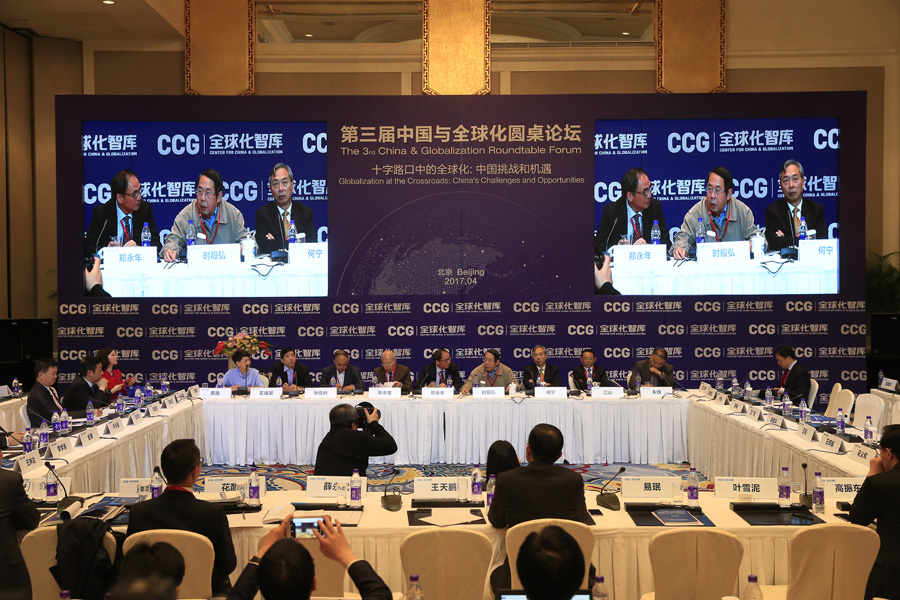
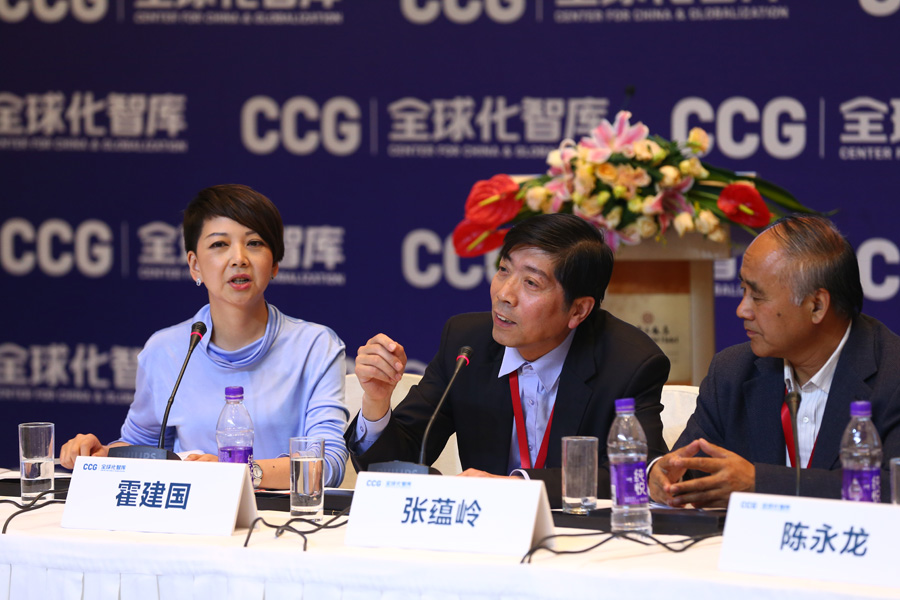
The Roundtable Forum invited Tian Wei, the prestigious anchor of CCTV programs “Dialogue” and “World Insight”, to host the 6th session on China’s Challenges and Opportunities in Trump’s Era. The United States is undergoing a lot of changes in domestic policies and international affairs since Donald Trump started his presidency. Considering all the uncertainties, how China can adjust its diplomatic strategies to maintain and strengthen the relations with the United States, East Asia and Europe has become a center topic at the session.
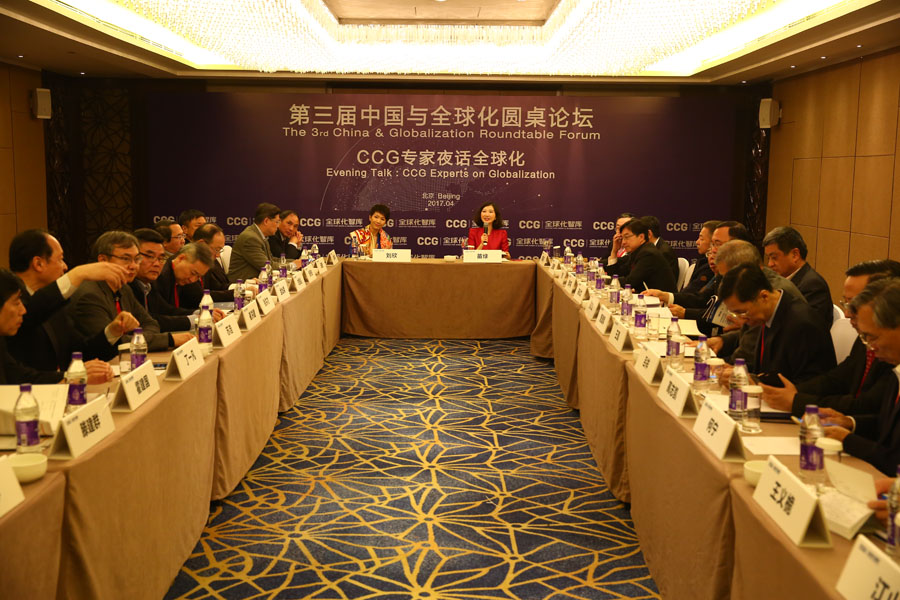
The Roundtable Forum was concluded with the 7th session at the gala dinner discussion, Co-hosted by CCG Secretary General Miao Lu and CGTN anchor Liu Xin. Beside the guests at the event, nearly 100 national and international media outlets sent their reporters to the Forum, such as Reuters, BBC, Bloomberg, Xinhua, CCTV and Sina.com. Through live stream on Internet, up to 1 million people have watched the forum online.
CCG annual Executive Board meeting (2017)






